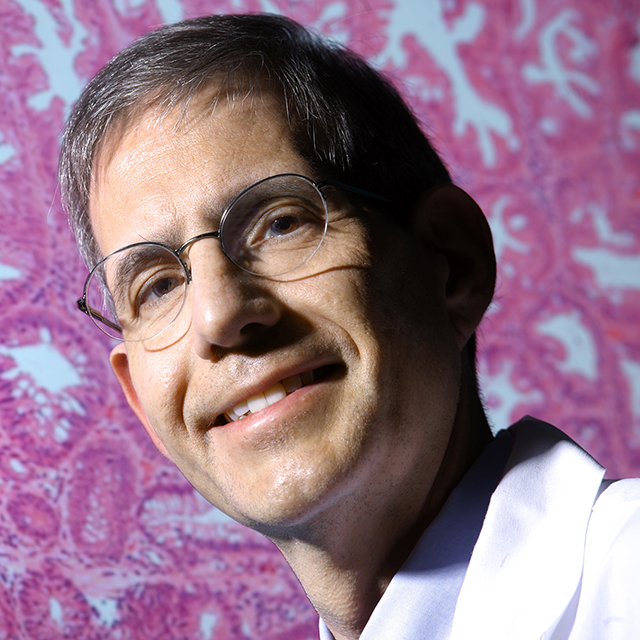Caption: Gregory Kumkumian and Alexis Edwards, standing, with Bill and Sandy Rogers.
Roughly every six months over the course of three years, Bill Rogers traveled the half-hour from his home in Gaithersburg, Maryland, to Suburban Hospital in Bethesda. As a volunteer participant in a clinical research trial there from 2019 to 2022, Rogers received intravenous infusions of what was either a new iron therapy drug or a placebo.
“Whether I got the drug or not, I hope I was able to help the system a bit,” says Rogers, now 78, a retired middle school English teacher who relied on his wife, Sandy, to drive him to the hospital. After many years of undergoing medical care for heart disease, he says, it felt like time to give back. “I owe something to the system that has been here to take care of me,” he says.
The phase III clinical trial, called HEART-FID, is testing whether intravenous iron can safely improve outcomes of patients with heart disease and iron deficiency. Gregory Kumkumian, medical director of the Cardiac Catheterization Laboratory at Suburban Hospital, is principal investigator at the hospital’s site of this multicenter, international trial.
HEART-FID is one of about 40 studies at Suburban, Howard County General and Sibley Memorial hospitals under the auspices of the Johns Hopkins Office of Capital Region Research (CAPRES), launched in 2011 to ensure patients access to cutting-edge clinical research beyond Johns Hopkins’ academic centers in Baltimore. The three hospitals can participate in trials throughout Johns Hopkins Medicine and the Clinical Research Network, a collaborative structure that supports multisite research and access to some 5 million patients at Johns Hopkins and partner hospitals.
CAPRES offers researchers a broad pool of participants, and avails Johns Hopkins patients with options for novel therapies and diagnostics at hospitals close to where they live.
“The value of being part of Johns Hopkins and CAPRES is that we can participate in this kind of innovative research that advances medicine and bring these opportunities directly to our patients,” says Kumkumian.
At Suburban, Alexis Edwards is one of several clinical research nurse coordinators for CAPRES, recruiting and guiding participants like Rogers, who was one of four HEART-FID participants there. Edwards and her team of nurses gave the volunteers lab tests and basic walking exercises, in addition to administering the infusions.
“We couldn’t do it without people like the Rogers, the people who choose to volunteer their time,” Edwards says. “As research coordinators, we create and maintain relationships with them. We follow them, check in on them, make sure they’re getting the care they need.”
Suburban Hospital is one of over 300 sites that participated in the HEART-FID study, sponsored by American Regent and facilitated by the Duke Clinical Research Institute. In total, around 3,000 volunteers took part.
“Research is where we get our answers,” Edwards says. “For a lot of my patients, they want to take these little steps to help better humanity.”
During the three years, challenges did arise. The study was temporarily paused during the COVID-19 pandemic, and when it resumed, new protocols and procedures were in place. At a couple of points, Rogers experienced unrelated health problems. “But I always just got the feeling that it was important to hang in there and keep going,” he says.
Rogers can’t help but recall what one medical technician told him when he was first diagnosed with mitral valve prolapse in the late 1990s. “He said, ‘You’re lucky to have this now as opposed to 10 years ago,” he says. “That helped me think about the way that medicine advances, and that’s where I see the value in participating in this kind of research.”

